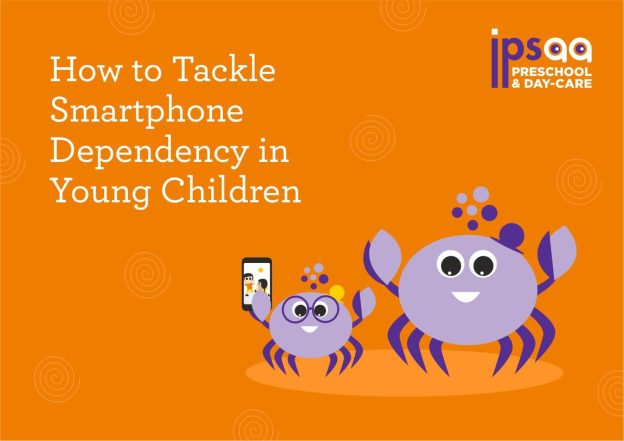In recent years, there has been a surge in the number of young children who are addicted to their smartphones. While this may not seem like a big deal at first, it can actually have a major impact on their development.
There are a number of reasons why this is happening, but one of the biggest is that parents are using their phones more and more in front of their kids. This sets a bad example and can make it seem like being on your phone all the time is the norm.
If you’re worried about your child’s smartphone dependency, there are a few things you can do to help them break the habit. In this blog post, we’ll explore some of those options and give you some tips on how to get started.
The rise of smartphone dependency in young children
It’s no secret that young children are becoming increasingly reliant on smartphones. A recent study found that 50% of 3- to 5-year-olds in the US have their own tablets, and around 80% of 6- to 8-year-olds have access to a smartphone.
This trend is worrying for a number of reasons. First, it suggests that young children are not getting enough face-to-face interaction with other people. This can lead to social skills problems later in life. Second, it means that young children are spending more time looking at screens, which can damage their eyesight. Finally, it increases the risk of young children experiencing internet addiction or cyberbullying.
The problem with young children and smartphones
Smartphones have become a staple in many people’s lives, young and old. However, there is a growing problem with young children and smartphones. More and more parents are giving their young children smartphones to keep them entertained, but this is leading to a dependency on these devices.
Children are not only becoming dependent on smartphones, but they are also missing out on important social interaction and physical activity. Instead of playing outside with friends, they are spending more time indoors glued to their screens. This is having a negative impact on their health and development.
There are a few things parents can do to help tackle this problem. First, they should limit the amount of time their children spend on their smartphones. Second, they should encourage their children to take part in other activities, such as playing sports or reading books. Finally, they should set a good example by using their own smartphones less in front of their children.
The dangers of smartphone dependency in young children
Smartphone dependency in young children can have a number of negative consequences. It can lead to them becoming withdrawn and anxious, as well as disrupting their sleep patterns. It can also make them more prone to accidents and injuries.
One of the biggest dangers of smartphone dependency in young children is that it can impact their development. Studies have shown that excessive screen time can lead to delays in speech and language development, as well as social and emotional skills. Additionally, it can interfere with play and learning, and limit a child’s ability to explore their surroundings and interact with others.
Another danger of smartphone dependency is that it can cause or worsen anxiety and depression in young children. This is because spending too much time on screens can lead to increased levels of stress and anxiety, as well as loneliness and isolation. Additionally, it can make it more difficult for children to cope with emotions, leading to further problems down the line.
If your child is showing signs of smartphone dependency, it’s important to take action immediately. There are a number of things you can do to help your child break the habit, including setting limits on screen time, establishing no-screen zones in your home, and encouraging them to engage in other activities.
The effects of smartphone dependency on young children
Smartphone dependency in young children can have a number of negative effects. Firstly, it can impact their social skills and ability to communicate effectively with others. This is because they are spending more time communicating via technology rather than face-to-face. Secondly, it can lead to them becoming isolated and withdrawn as they form relationships with their online friends rather than those in the real world. Finally, it can affect their school performance as they become distracted by their phone during lessons or use it to cheat in exams.
If you’re concerned about your child’s smartphone dependency, there are a few things you can do to help tackle the problem. Firstly, set some ground rules about when and where they can use their phone. For example, no phones at the dinner table or during family time. Secondly, encourage them to take part in other activities that don’t involve screens, such as playing sports or reading a book. Finally, lead by example and try to cut down on your own screen time so that your child sees you doing it too.
Ways to tackle smartphone dependency in young children
- Turn off screens an hour before bedtime: This will help your child wind down and prepare for sleep.
- Set screen-free times during the day: Let your child know when it is okay to use screens and when they need to be put away.
- Encourage other activities: Take time to do things as a family that don’t involve screens. Play games, read together, or go for walks outdoors.
- Model healthy behaviour: Show your child that you can have fun without being glued to a screen all the time.
- Be understanding and consistent: It takes time for children to adjust to new rules and routines. Be patient and stick to your plan.
- Teach responsible use: Explain to your child why it’s important to use their smartphone responsibly, and set rules about what they can and can’t do online. For example, they should only be using apps that are appropriate for their age group.
- Monitor their activity: Keep an eye on what your child is doing online, and who they’re talking
Conclusion
The best way to tackle smartphone dependency in young children is to set limits on their use from an early age. It’s important to teach them how to use their devices responsibly and only for purposes that are beneficial to them. By setting these limits, you’ll help your child develop a healthy relationship with their smartphone that will last into adulthood. https://ipsaa.in/contact-us/


